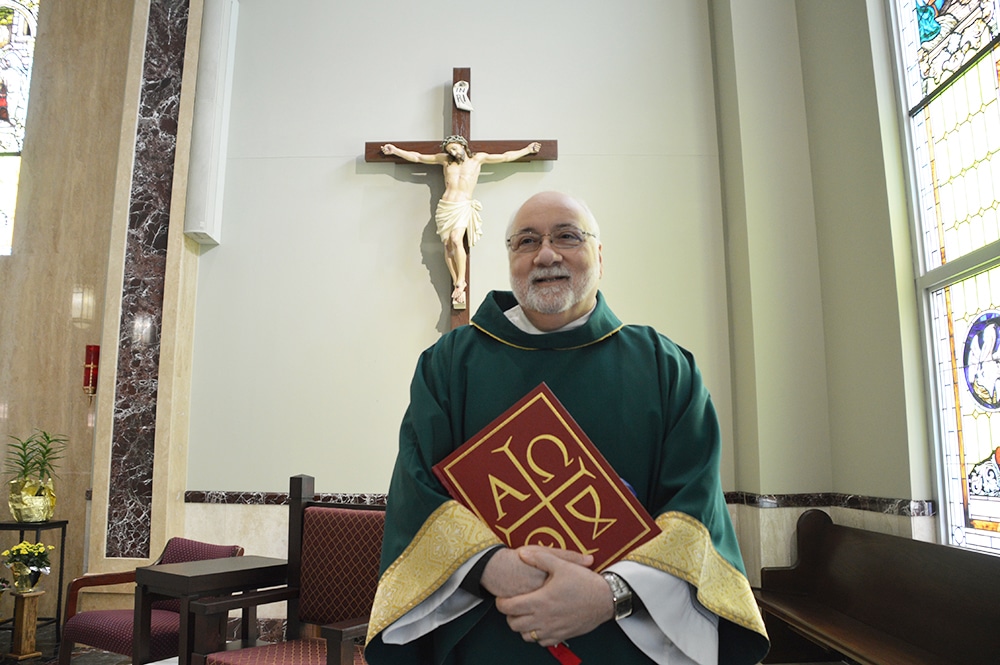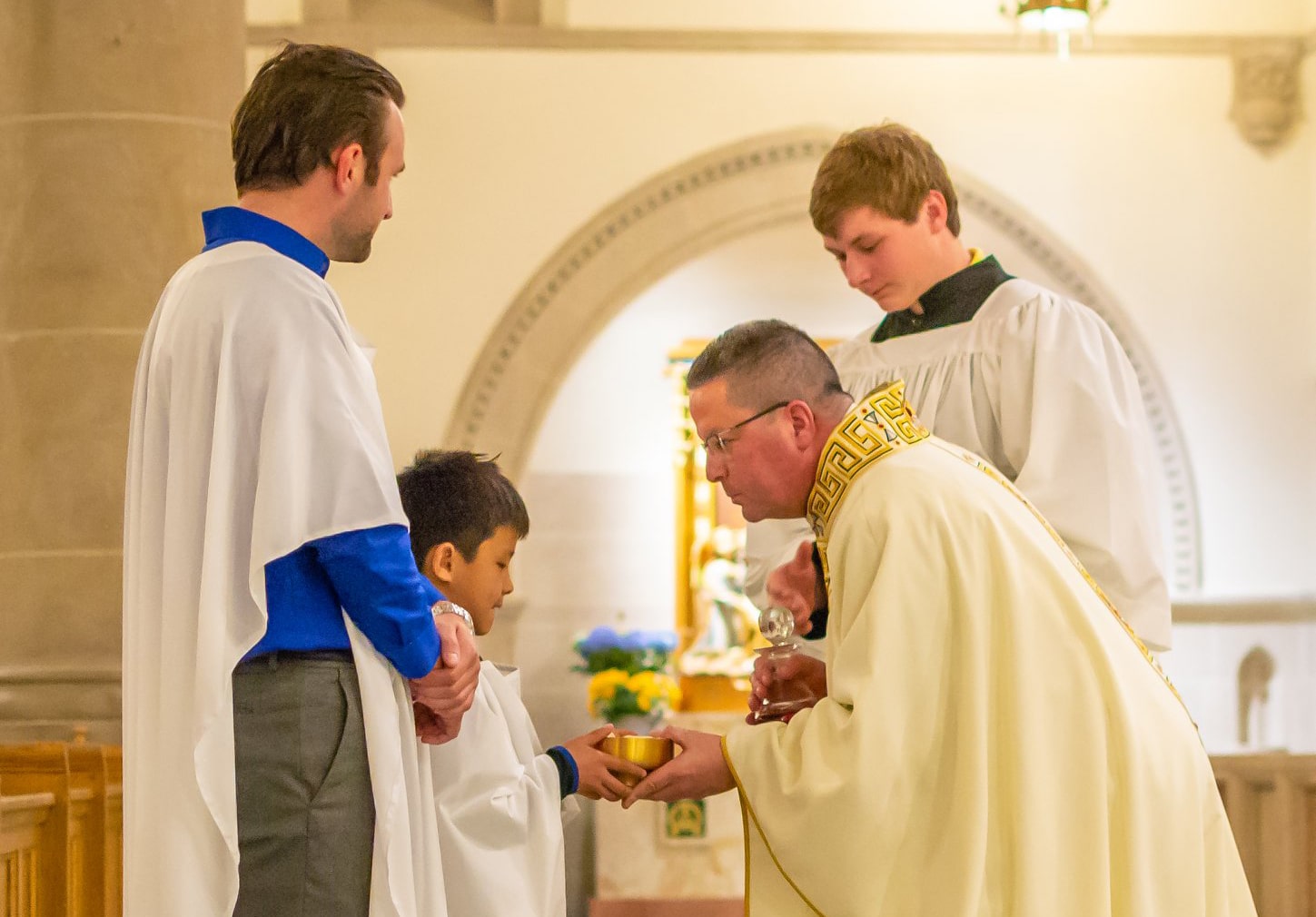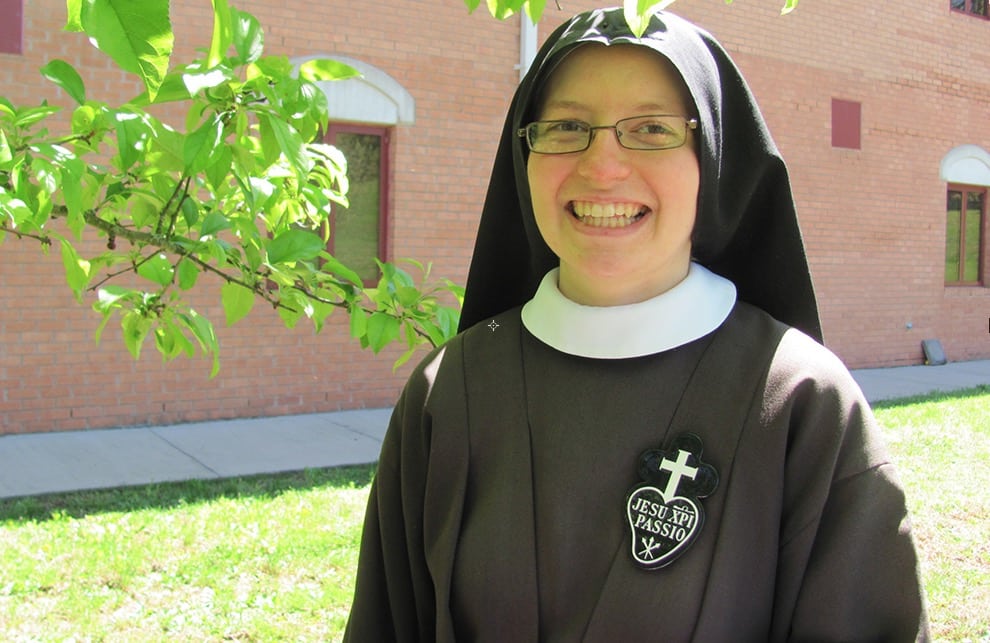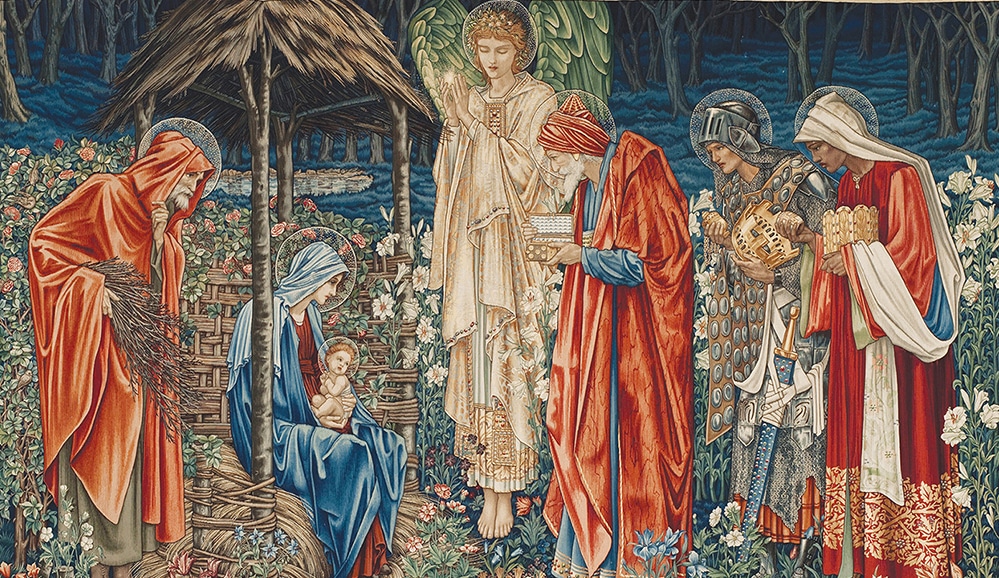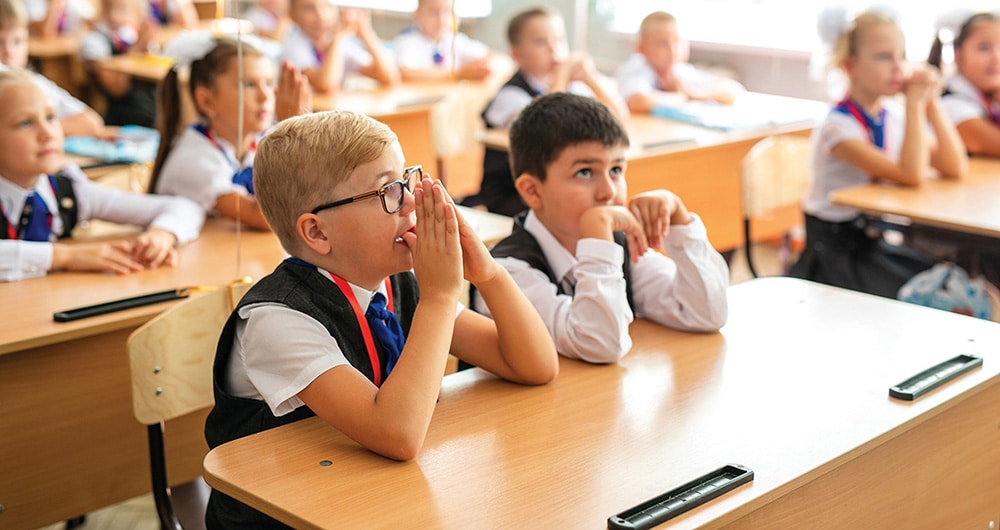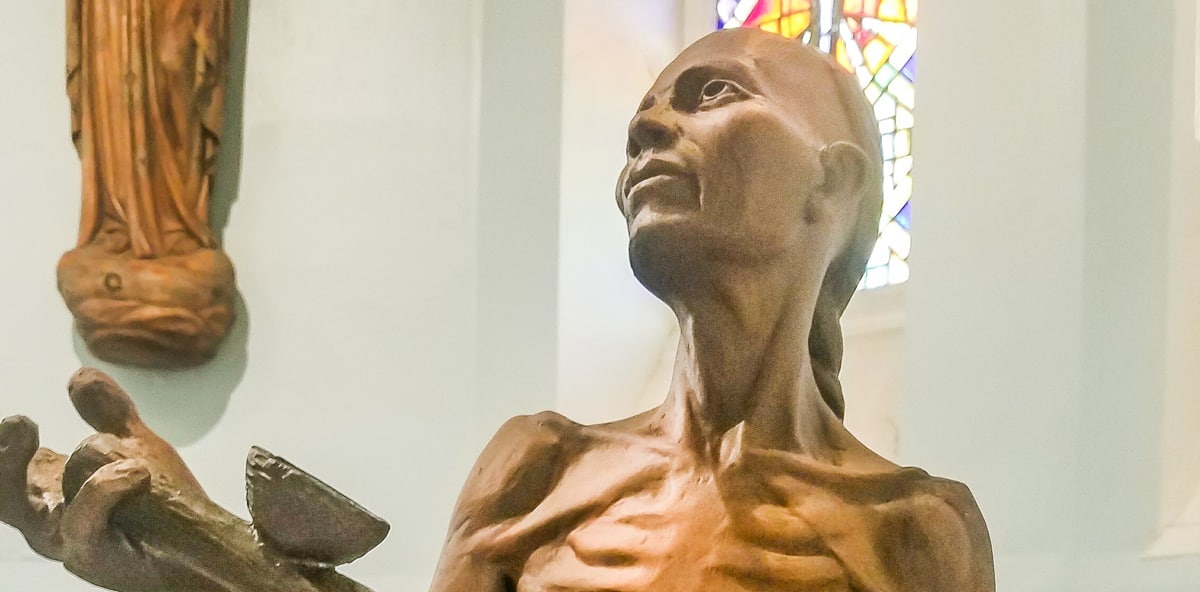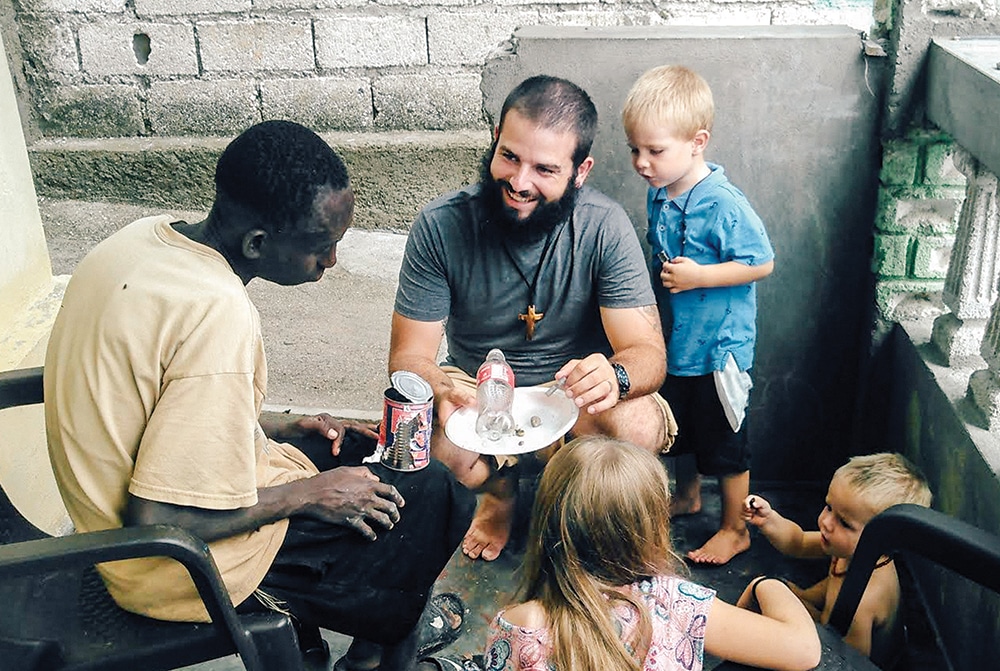When I think about the question most people ask me, it’s usually preceded by a misidentification. In nearly 25 years of service as a deacon, I can count on one hand the times on a Sunday I’ve not been mistaken for a priest. This typically happens when I stand outside after Mass saying goodbye. Busy with the bulletin or herding children, one or two will inevitably say, “Have a good day, Father.” To make them feel comfortable as I correct the record, I tell them that I’m a deacon, adding with a smile, “Well, I am a father of seven, but we all know the real money is in being a monsignor.” It’s not that these folks don’t know I’m a deacon. It’s simply that, unclear of the real differences, they simply slide into the perfunctory, “Have a nice day, Father.”
Sure, I dress similar to priests, and, sure, I’m up in the sanctuary, but the differences are there for anyone willing to look. My vestments are always different from the priest’s, and our roles within the liturgy are quite distinct. I thought, initially, because I was the first permanent deacon ordained in my diocese, and because I was in a class of one, this, too, would pass. But it didn’t.
Contributing to this misidentification is that few Catholics have been catechized as to what a deacon is and his unique contribution to the life of the Church. Some see us as priest wannabes who couldn’t hack celibacy, others as glorified altar boys. Despite the fact that we are 50 years into the restoration of this ancient order, the diaconate still remains a mystery to many.
Occasionally, after I jest about being a monsignor, I’ll get, “So, what do you do different from priests?” The question, though well intended, misses a fundamental point. What we do as clerics flows, first and foremost, from who we are.
To appreciate what I mean here, imagine if someone, in an attempt to understand parenthood, walked up to one parent and said, “What is it you do different from the other parent?” Motherhood and fatherhood, while consisting of different tasks depending on the culture and couple, can’t be reduced to those tasks, especially since many of these can be done quite adequately by a babysitter.
Just as parenthood can’t be defined by tasks, so, too, is it in the case of the priesthood and diaconate. Indeed, just as parenthood is defined by a relationship (specifically to children), so, too, priests and deacons are equally defined by a relationship — a relationship to Christ and his Church.
Given this understanding, what then is the role of the deacon? Quite simply, it is to bear witness to Christ the Servant. Just as all the faithful participate in the one priesthood of Christ, each in their own way, so, too, all are called to participate in the one diaconate of Christ. That said, the deacon is called to bear witness in a particular way expressed in ecclesial ministry and his own personal life. He is, by virtue of his ordination, an envoy or emissary of the bishop through the threefold gifts of liturgy, word and charity. In this way he inspires the laity, priesthood and episcopacy with a zeal for service by his life and ministry.
This service, rather than being reduced to any one single ministry, can best be described as “a gift-of-self that wills the good of the other for the sake of the other.” What the deacon witnesses to the world is that authentic ministry is not something we do, but rather someone we give: our very selves. It is, in the end, an act of divine love expressed in sacred service. This is precisely the example Our Lord expressed most beautifully on the cross. Referring to himself, he says, “For the Son of Man did not come to be served but to serve and to give his life as a ransom for many” (Mk 10:45).
At this point, I wonder whether I’ll ever see the day when I’m not confused with a priest. Still, each time it happens, it gives me an opportunity to bear witness to the gift that is my diaconate. For this, I am truly blessed.

